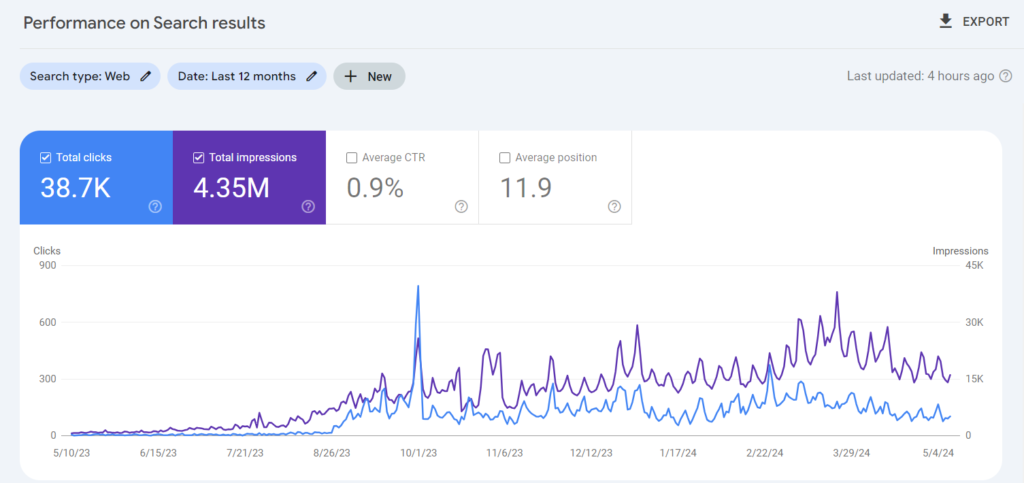In the rapidly evolving digital landscape, staying ahead of the competition requires more than just a website; it demands a robust, adaptive SEO strategy. Search Engine Optimization (SEO) is the backbone of online visibility, driving traffic, enhancing user experience, and ultimately, boosting conversions. Here, we delve into some game-changing SEO services strategies that can elevate your online presence to new heights.
1. Comprehensive Keyword Research and Optimization
Effective SEO begins with understanding what your audience is searching for. Comprehensive keyword research involves identifying high-traffic, low-competition keywords that align with your business goals. Use tools like Google Keyword Planner, SEMrush, and Ahrefs to uncover these golden keywords.
Strategy Tip: Focus on long-tail keywords. These are more specific phrases that may have lower search volumes but higher conversion rates. For instance, instead of targeting “running shoes,” aim for “best running shoes for flat feet.” Long-tail keywords often capture more qualified traffic, as users searching for these terms are likely closer to making a purchase decision.
2. Quality Content Creation
Content is king in the realm of SEO. High-quality, relevant content not only attracts visitors but also keeps them engaged. Google’s algorithms favor websites that consistently produce valuable content.
Strategy Tip: Implement a content calendar to ensure regular updates. Incorporate various content types, such as blog posts, videos, infographics, and podcasts, to cater to different audience preferences. Ensure your content answers common questions and solves problems for your target audience. Additionally, use storytelling techniques to make your content more engaging and relatable.
3. On-Page SEO Optimization
On-page SEO involves optimizing individual pages on your website to rank higher and earn more relevant traffic. This includes optimizing meta titles, descriptions, headers, and images.
Strategy Tip: Use descriptive, keyword-rich titles and meta descriptions. Ensure your headers (H1, H2, H3) are well-structured and include primary and secondary keywords. Optimize images with descriptive file names and alt text to improve accessibility and searchability. Additionally, focus on improving the readability of your content by using bullet points, short paragraphs, and clear subheadings.
4. Mobile-First Indexing
With the majority of searches now conducted on mobile devices, Google has shifted to mobile-first indexing. This means your website’s mobile version is the primary basis for Google’s indexing and ranking.
Strategy Tip: Ensure your website is fully responsive, with fast loading times and easy navigation on mobile devices. Use Google’s Mobile-Friendly Test tool to check your site’s performance and make necessary adjustments. Pay attention to mobile user experience (UX) factors like touch-friendly navigation, simplified forms, and clear CTAs.
5. Technical SEO Audits
Technical SEO involves optimizing your website’s infrastructure to ensure search engines can crawl and index your site effectively. Regular technical audits are crucial to maintaining your site’s health.
Strategy Tip: Use tools like Screaming Frog, Google Search Console, and Moz to conduct comprehensive technical audits. Check for issues like broken links, duplicate content, and slow page speeds. Implement structured data to enhance search engine understanding and improve your chances of appearing in rich snippets. Additionally, ensure your website has a clean URL structure and a well-organized sitemap.
6. Link Building and Backlink Strategies
Backlinks from authoritative sites signal to search engines that your content is trustworthy and valuable. A strong backlink profile is a significant ranking factor.
Strategy Tip: Focus on quality over quantity. Build relationships with industry influencers and authoritative websites for guest posting opportunities. Create shareable content that naturally attracts backlinks, such as in-depth guides, original research, and infographics. Additionally, engage in broken link building by finding broken links on other websites and suggesting your relevant content as a replacement.
7. Local SEO Optimization
For businesses with a physical presence, local SEO is indispensable. Optimizing for local search helps you attract customers in your vicinity.
Strategy Tip: Ensure your Google My Business profile is complete and accurate. Encourage satisfied customers to leave reviews. Optimize your website with local keywords, such as “best Italian restaurant in delhi.” Additionally, create location-specific landing pages and list your business in relevant local directories.
8. User Experience (UX) Enhancements
User experience plays a critical role in SEO. A positive UX can lead to lower bounce rates and higher engagement, both of which are favorable in the eyes of search engines.
Strategy Tip: Focus on site speed, intuitive navigation, and clear calls-to-action (CTAs). Ensure your website design is clean and clutter-free. Regularly conduct user testing to identify and fix UX issues. Additionally, implement a consistent design across all pages and make sure your website is accessible to all users, including those with disabilities.
9. Voice Search Optimization
With the rise of smart speakers and virtual assistants, voice search is becoming increasingly popular. Optimizing for voice search involves understanding natural language queries and conversational keywords.
Strategy Tip: Focus on question-based keywords and long-tail phrases. Create content that directly answers common questions your audience might ask. Ensure your website is mobile-friendly, as many voice searches are conducted on mobile devices. Additionally, use structured data markup to enhance the chances of your content being featured in voice search results.
10. Analytics and Continuous Improvement
SEO is not a one-time task but an ongoing process. Regularly analyzing your SEO performance helps you understand what’s working and where improvements are needed.
Strategy Tip: Use tools like Google Analytics, Google Search Console, and SEMrush to track your SEO metrics. Monitor key performance indicators (KPIs) such as organic traffic, bounce rate, conversion rate, and keyword rankings. Continuously refine your strategies based on data insights. Additionally, set up custom alerts to notify you of significant changes in your SEO performance.
11. Content Refresh and Repurposing
Content can become outdated, leading to a decline in its effectiveness. Regularly refreshing and repurposing content can breathe new life into your SEO efforts.
Strategy Tip: Identify high-performing content that has seen a drop in traffic and update it with new information, images, and keywords. Repurpose content into different formats, such as turning a blog post into a video or an infographic. This not only extends the lifespan of your content but also reaches a broader audience.
12. Utilizing AI and Machine Learning
Artificial Intelligence (AI) and machine learning are revolutionizing SEO by providing deeper insights and automating complex tasks. Leveraging these technologies can enhance your SEO strategy.
Strategy Tip: Use AI-powered tools like MarketMuse and Clearscope for content optimization and topic research. Implement machine learning algorithms to analyze user behavior and personalize content. Additionally, use AI chatbots to improve customer interaction and gather valuable data for refining your SEO strategy.
13. Building a Strong Social Media Presence
While social media signals are not a direct ranking factor, a strong social media presence can amplify your SEO efforts. Social media can drive traffic, enhance brand visibility, and create opportunities for backlink building.
Strategy Tip: Share your content across various social media platforms and engage with your audience. Encourage social sharing by integrating social sharing buttons on your website. Additionally, collaborate with influencers to expand your reach and build credibility.
14. Focus on E-A-T (Expertise, Authoritativeness, Trustworthiness)
Google’s Quality Rater Guidelines emphasize the importance of E-A-T in evaluating content quality. Focusing on these principles can improve your site’s credibility and rankings.
Strategy Tip: Showcase your expertise by producing high-quality, authoritative content. Highlight your credentials and those of your contributors. Ensure your site has clear contact information, privacy policies, and terms of service to build trust with users and search engines.
15. Harnessing the Power of Video SEO
Video content is becoming increasingly important in SEO. Optimizing videos can significantly enhance your online visibility and engagement.
Strategy Tip: Create engaging, high-quality videos that provide value to your audience. Optimize video titles, descriptions, and tags with relevant keywords. Use video transcripts to improve accessibility and searchability. Additionally, host videos on platforms like YouTube and embed them on your website to drive traffic.
Conclusion
Implementing these game-changing SEO strategies can significantly enhance your online presence and drive sustainable growth. Remember, SEO is a long-term investment. Stay patient, be consistent, and keep adapting to the ever-changing digital landscape. By staying ahead of the curve, you can ensure your business not only survives but thrives in the competitive online world.
Investing in comprehensive keyword research, quality content creation, on-page optimization, mobile-first indexing, and technical audits will lay a strong foundation for your SEO efforts. Enhancing your backlink profile, optimizing for local and voice search, and focusing on user experience will further bolster your strategy. Regularly analyzing your performance and embracing new technologies like AI and machine learning will keep your approach dynamic and effective. Don’t miss out on these game-changing SEO strategies to unlock your website’s full potential and achieve long-term success.






